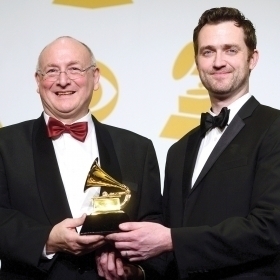We climbed Galen Stone Tower with a few questions for Margaret Angelini ’85, carillon instructor and director of the Guild of Carillonneurs.
Do you remember the first time you heard the College bells?
The second day I was on campus, I opened up my dorm room window in Bates, heard the carillon, and ran across the campus as fast as I could and up the stairs to try to meet the person who was playing the bells. When I got there, she’d finished, but there was a sign on the door: “If you’re interested in playing the carillon, come to the informational meeting.” And I signed right up, and I’ve been playing ever since.
Did you come to Wellesley to study music?
I knew I wanted to do music, but I didn’t know how I wanted to do it. And coming someplace where music was a part of the whole picture meant that I could hedge my bets against other things. But I also realized that, in the long run, it was probably a better decision than a conservatory, because a musician without other aspects of her life developed is pretty atrophied. You’re a much richer musician for having studied philosophy and done scientific experiments.
What books would we find on your nightstand?
There’s the book Hallucinations, by Oliver Sacks. I love his writing, because he sees people so beautifully. And there’s a book by the carillonneur at the University of Leuven in Belgium. It’s a great carillon history book.
What can you see from up here?
I can see the weather coming from all four directions. I can see when the observatory is open for stargazing. I can see airplanes taking off from Logan. I can see the boats out on the lake. But I can’t see anything private or personal, because I’m too far up in the air. It’s my favorite spot on campus, and it’s a good thing it is. I spend a lot of time up here.
Do you have a favorite piece you play on these bells?
The one I’ve been playing the longest is the Cello Suite in G Major by J.S. Bach. That’s the one. That, and another piece that’s an arrangement of a hornpipe, The Fisher’s Hornpipe by Percival Price. He arranged it for a two-octave instrument, so it fits perfectly here. Somebody plays it after commencement every year. And if I’m lucky, it’s me.





We ask that those who engage in Wellesley magazine's online community act with honesty, integrity, and respect. (Remember the honor code, alums?) We reserve the right to remove comments by impersonators or comments that are not civil and relevant to the subject at hand. By posting here, you are permitting Wellesley magazine to edit and republish your comment in all media. Please remember that all posts are public.